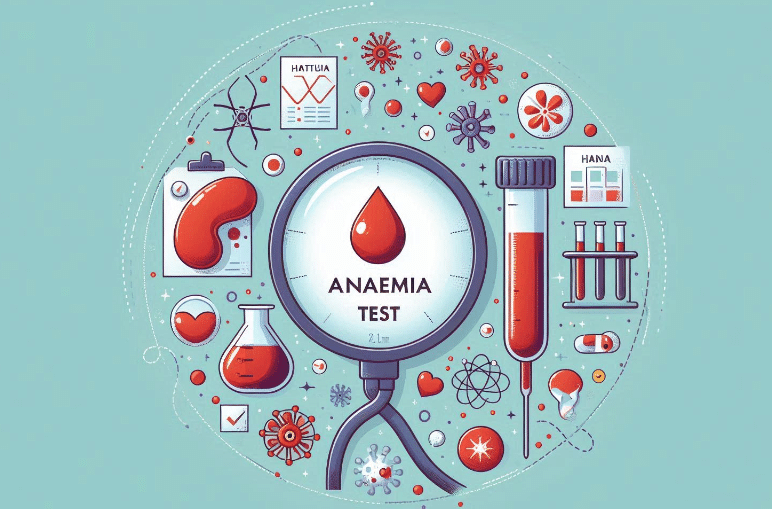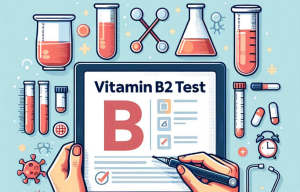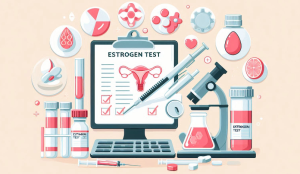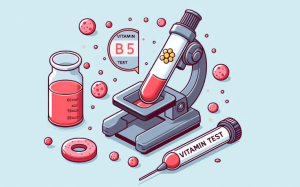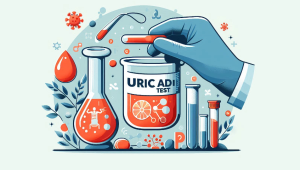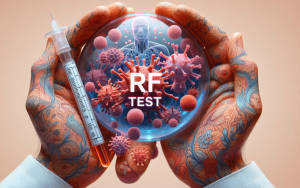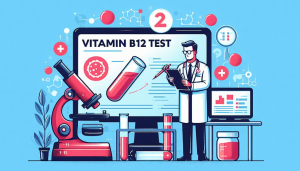What is an Anemia Test?
An anemia test is a blood test used to detect and diagnose anemia, a condition where your blood doesn’t have enough healthy red blood cells to carry adequate oxygen to your body’s tissues. This lack of oxygen can make you feel tired and weak. There are several types of anemia tests, but the most common one is a complete blood count (CBC).
Why Do You Need an Anemia Test?
An anemia test might be recommended if:
- You have symptoms of anemia: These can include fatigue, weakness, pale skin, shortness of breath, dizziness, cold hands and feet, chest pain, and fast heartbeat.
- You have risk factors for anemia: These include a diet low in iron or vitamins, heavy menstrual periods, pregnancy, chronic diseases, or a family history of anemia.
- You’re undergoing a routine health checkup: Anemia can sometimes be asymptomatic, especially in its early stages. Regular checkups can help detect it early.
- You’re being monitored for a chronic condition: Certain chronic conditions, like kidney disease or cancer, can increase your risk of anemia.
What Does an Anemia Test Measure?
An anemia test, particularly a CBC, measures various parameters related to your red blood cells, including:
- Red blood cell count (RBC): The number of red blood cells in a given volume of blood.
- Hemoglobin (Hb): The iron-containing protein in red blood cells that carries oxygen.
- Hematocrit (Hct): The percentage of your blood volume that is made up of red blood cells.
- Mean corpuscular volume (MCV): The average size of your red blood cells.
- Mean corpuscular hemoglobin (MCH): The average amount of hemoglobin in a single red blood cell.
- Mean corpuscular hemoglobin concentration (MCHC): The average concentration of hemoglobin in a given volume of red blood cells.
Other specific tests might be ordered to determine the type and cause of anemia, such as:
- Iron levels: To check for iron deficiency anemia.
- Vitamin B12 and folate levels: To assess for deficiencies that can cause anemia.
- Reticulocyte count: To measure the production of new red blood cells.
Preparing for the Test
Usually, no special preparation is needed for an anemia test. However:
- Fasting: Some labs might require fasting for a certain period before the test. Check with your healthcare provider.
- Medications: Inform your doctor about any medications or supplements you’re taking, as some can interfere with the results.
Understanding the Results
Normal ranges for the various parameters measured in an anemia test can vary depending on age, sex, and other factors. Your healthcare provider will interpret your results and explain what they mean for your health. Generally:
- Low RBC, Hb, or Hct: Suggests anemia.
- MCV, MCH, and MCHC: Help identify the type of anemia (e.g., iron-deficiency, vitamin deficiency, etc.).
- Other test results: Provide additional information about the cause of anemia and help guide treatment decisions.
Risk Factors and Prevention
Various factors can increase your risk of developing anemia:
- Diet low in iron, vitamin B12, or folate: These nutrients are essential for red blood cell production.
- Heavy menstrual periods: Can lead to iron loss and iron-deficiency anemia.
- Pregnancy: The increased demand for iron and other nutrients during pregnancy can contribute to anemia.
- Chronic diseases: Conditions like kidney disease, cancer, or inflammatory bowel disease can interfere with red blood cell production or cause blood loss.
- Family history of anemia: Certain inherited conditions can increase your risk.
Prevention strategies include:
- Eat a balanced diet: Include plenty of iron-rich foods (meat, poultry, fish, legumes, leafy green vegetables), vitamin B12 sources (meat, poultry, fish, dairy), and folate-rich foods (leafy green vegetables, citrus fruits, fortified grains).
- Consider supplements: Talk to your doctor about taking iron, vitamin B12, or folic acid supplements if your diet is inadequate or you have specific risk factors.
- Manage underlying conditions: If anemia is caused by a chronic disease, managing that condition is important for controlling anemia.
Remember, early diagnosis and treatment of anemia are essential for improving your health and preventing complications. Consult your healthcare provider if you have any concerns about your risk or are experiencing symptoms of anemia.

 7351982473
7351982473